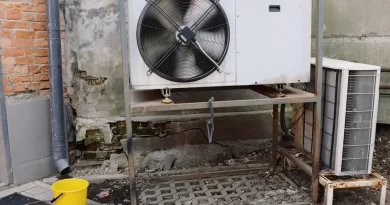Essential Tips for Efficient Septic System Maintenance in Residential Homes
Key Takeaways
- Routine maintenance and proper usage can significantly extend the life of your septic system.
- Understanding the dos and don’ts can prevent costly repairs and environmental damage.
- Simple measures can ensure your septic system remains functional and efficient.
Maintaining your septic system is crucial for the longevity of your home’s waste management solution. Ignoring your system’s needs can lead to costly repairs and environmental hazards, turning what should be a seamless process into a significant headache. Knowing the basics of septic system maintenance and when to use professional Septic Services is essential for any homeowner. These services ensure your septic system remains in peak condition, addressing problems before they become catastrophic.
Routine maintenance ensures your system runs efficiently, avoiding unexpected failures and preserving the environment. Septic systems rely on delicate bacterial balances to break down waste, meaning slight mismanagement can disrupt the entire process. Here, we provide comprehensive tips to help you maintain your septic system effectively and keep things flowing smoothly in your home.
Understanding Your Septic System
A septic system comprises a septic tank and a drain field. Wastewater from your home enters the septic tank, where solid waste settles at the bottom, forming sludge. Bacteria break down organic matter, and the liquid effluent is directed to the drain field for natural filtration by the soil. Each component is vital for waste management, underscoring the importance of regular maintenance provided by septic services.
Regular inspections and maintenance are vital to keeping these systems operating correctly. When a part of the system fails, untreated wastewater can seep into the ground, causing environmental harm and health hazards. Proper care ensures that the septic tank and drain field remain functional and blockage-free, enabling efficient handling of household wastewater.
Signs Your Septic System Needs Attention
Early detection of failing septic system warning signs can save money, time, and effort. Here are common indicators:
- Slow drains or backups in your sinks, toilets, and showers. This could suggest a blockage or that your tank is full.
- Unpleasant odors around your property. Rotting waste can release foul gases, indicating issues in your septic system.
- Lush green grass covers the drain field area. This seemingly positive sign indicates effluent is surfacing, meaning the soil is oversaturated.
- If you have pooled water or spongy soil in your yard, this usually signals that the drain field is failing to absorb the liquid properly.
Get expert help when you encounter these symptoms to prevent further harm. Professional assessments can identify the root cause and provide timely resolutions, preventing minor issues from escalating into major repairs.
Best Practices for Septic System Maintenance
Regular septic pumping and inspections are vital. Considering your home’s size and the tank’s capacity, it’s recommended to pump your septic tank every three to five years. Annual inspections are crucial to detect potential issues early, such as tank cracks or leaks that may cause system failure. These services, including septic pumping, are essential for maintaining system integrity.
Proper waste disposal is another critical aspect. Do not flush non-biodegradable materials like wipes, diapers, or sanitary goods. These items can clog the system and hinder the decomposition process within the tank. Cooking grease, oil, and chemicals should also be kept out of the septic system, as they can kill the beneficial bacteria and cause blockages.
Water usage also plays a significant role. Limit the amount of water that enters the septic system by installing high-efficiency toilets and showerheads and fixing leaks promptly. This prevents overloading the system and ensures efficient wastewater treatment. Additionally, spread out laundry and dishwashing loads to reduce water inflow and allow your septic system time to effectively treat and disperse the water.
Common Mistakes to Avoid
Flushing Non-Biodegradable Items
One of homeowners’ most significant mistakes is flushing items that don’t break down naturally. Non-biodegradable items can cause blockages and reduce the efficiency of your septic system. Items like dental floss, feminine hygiene products, and cat litter should never be flushed, as they can disrupt the system and lead to costly repairs.
Overusing Water
Excessive water entering the septic system can interfere with the natural treatment, causing overflow and potential failures. Avoid using multiple water-heavy appliances simultaneously to give your septic system time to treat wastewater. For instance, running the washing machine, dishwasher, and shower simultaneously can overwhelm the system, leading to slow drainage and potential backups.
Eco-Friendly Tips
Using eco-friendly cleaning products can significantly lower the risk of harming the bacteria crucial for breaking down waste in your septic tank. Avoid using strong chemicals such as bleach and ammonia. Instead, consider using biodegradable and non-toxic alternatives that are safe for your septic system and the environment.
Consider reducing your household’s impact by conserving water and spreading laundry loads throughout the week. This helps maintain the balance and efficiency of your septic system. Water conservation reduces the strain on your septic system and contributes to overall environmental sustainability.
FAQ on Septic System Maintenance
Q: How frequently should my septic tank be pumped?
A: Generally, septic tanks should be pumped every three to five years. The exact interval depends on the tank size, household size, and usage. Regular pumping removes the accumulated sludge and scum, preventing it from overflowing into the drain field.
Q: Can I use a garbage disposal with a septic system?
A: Using garbage disposal increases the solid load in your septic tank, leading to more frequent pumping. If you must use one, choose a high-efficiency model and limit its use to avoid straining the system. Using a composting bin rather than a garbage disposal will also lighten the strain on your septic system.
Q: What are the risks of ignoring septic system maintenance?
A: Ignoring maintenance can lead to system failure, costly repairs, unpleasant odors, and environmental damage. Regular upkeep helps avoid these issues, ensuring your system functions efficiently and effectively for years.
Conclusion
Proper septic system maintenance is vital for every homeowner. You may prolong the life of your system, avoid expensive issues, and save the environment with routine inspections, careful use, and expert servicing. Stay proactive and follow these tips to keep your septic system in top condition.




